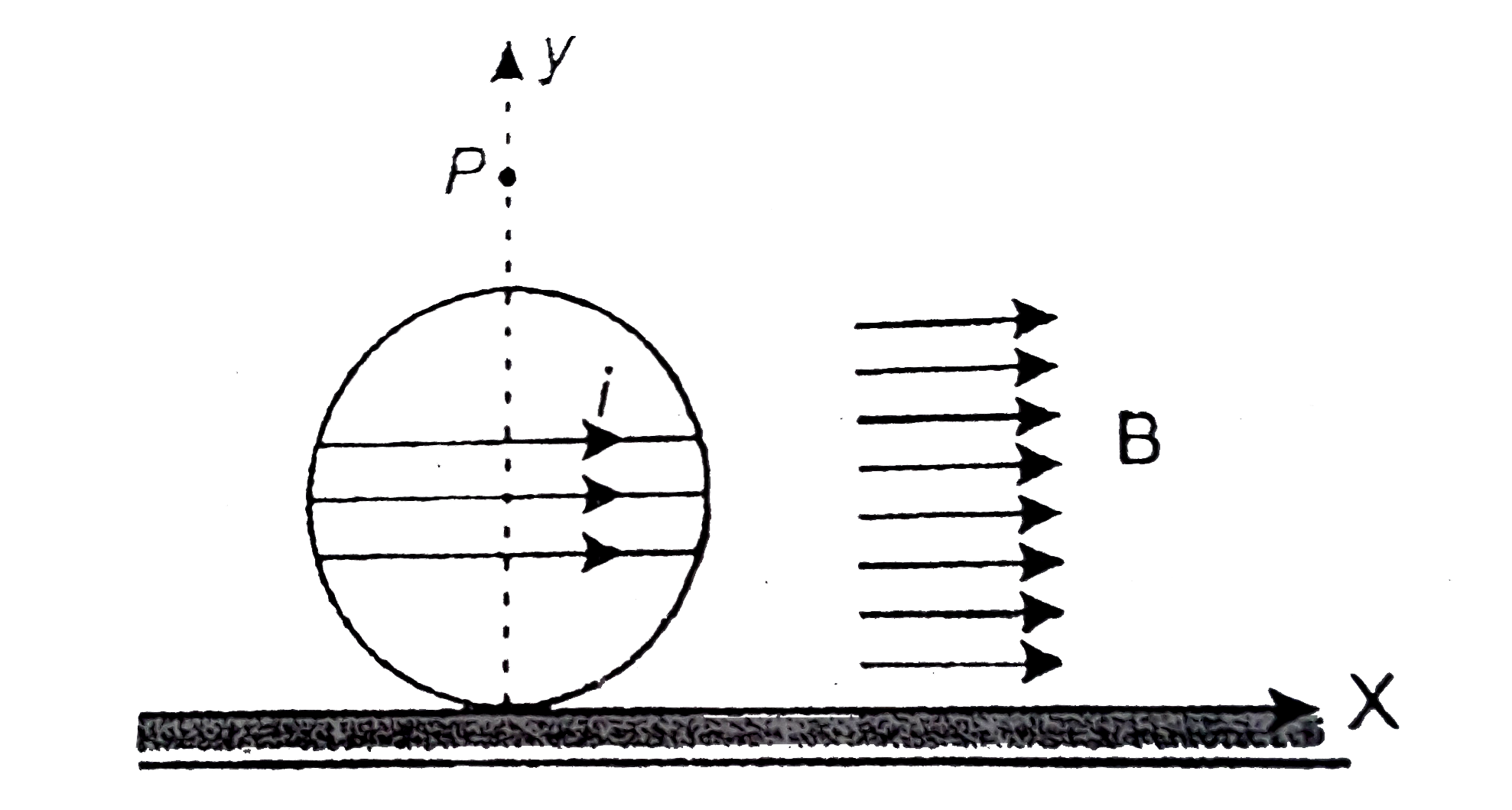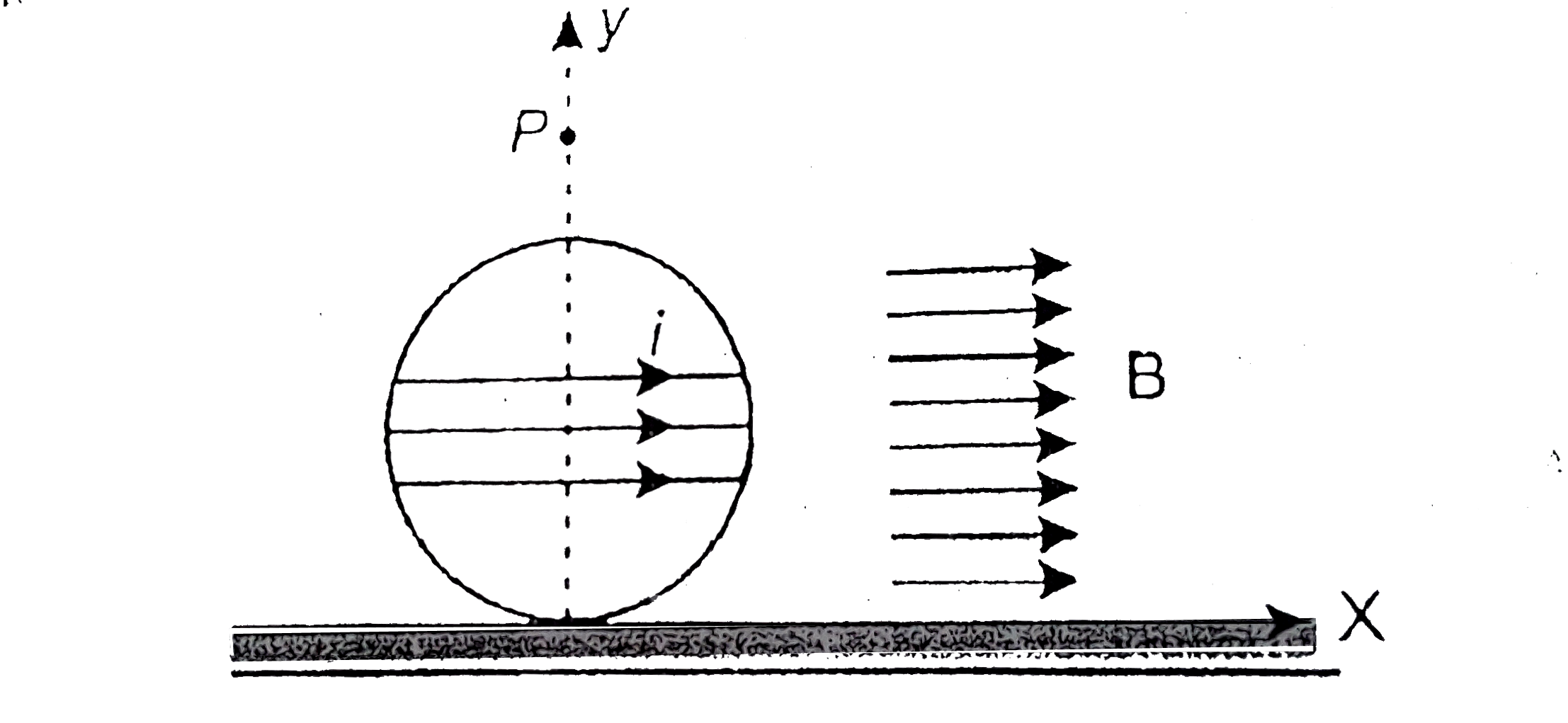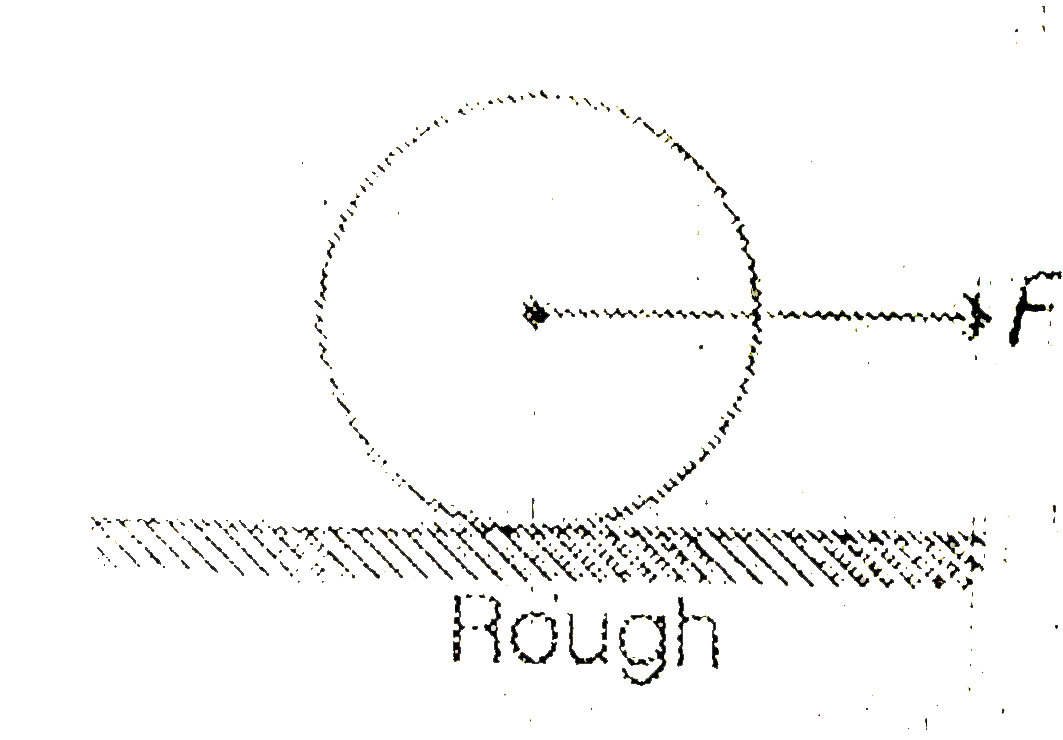A person wants to roll a solid non-conducting spherical ball of mass m and radius r on a surface whose coefficient of static friction is μ. He placed the ball on the surface wrapped with n turns of closely packed conducting coils of negligible mass at the diameter.
By some arrangement he is able to pass a current i through the coils in anti-clockwise direction when viewed downwards from point P. A constant horizontal magnetic field →B is present throughout the space along the positive x direction as shown in the figure. (Assume μ is large enough to help pure rolling motion and initially the plane of the coils is perpendicular to the y-axs) 
If current i is passed through the coil then
maximum torque in the coils is −πnir2Bˆk
maximum torque in the coil is −πnir2Bˆj
The coils will attain minimum potential energy, when ball has rotated through angle θ=90∘
The coils will attain minimum potential energy, when the ball has rotated through angle θ=180∘
NA
Topper's Solved these Questions
- TEST PAPERSBOOK - RESONANCE ENGLISHCHAPTER - TEST PAPERSEXERCISE - PART - II PHYSICS
106 Videos
- SIMPLE HARMONIC MOTION BOOK - RESONANCE ENGLISHCHAPTER - SIMPLE HARMONIC MOTION EXERCISE - Advanced Level Problems
13 Videos
- TEST SERIESBOOK - RESONANCE ENGLISHCHAPTER - TEST SERIESEXERCISE - PHYSICS
130 Videos
Similar Questions
A person wants to roll a solid non-conducting spherical ball of mass m and radius r on a surface whose coefficient of static friction is μ. He placed the ball on the surface wrapped with n turns of closely packed conducting coils of negligible mass at the diameter.
By some arrangement he is able to pass a current i through the coils in anti-clockwise direction when viewed downwards from point P. A constant horizontal magnetic field →B is present throughout the space along the positive x direction as shown in the figure. (Assume μ is large enough to help pure rolling motion and initially the plane of the coils is perpendicular to the y-axs)
The angular velocity of the ball when it is has rotated through an angle θ is (θ<180∘)
View SolutionA body of mass m is placed on a rough surface with coefficient of friction μ inclined at θ. If the mass is in equilibrium , then
View Solution
Knowledge Check
A spherical metal ball of mass m and radius (r) is falling through a viscous medium. The value of its terminal velocity is proportional to
A1/r onlyBm/rC(m/r)1/2Dm only
A body of mass m is placed on a rough surface with coefficient of friction μ inclined at θ. If the mass is in equilibrium , then
View SolutionIf μs,μk and μr are the coefficients of static, kinetic and rolling friction respectively then
View SolutionA block of mass m is moving on a rough horizontal surface. μ is the coefficient of kinetic friction between the block and the surface. What is the net force exerted by the surface on the block?
View SolutionIf current through a circular coil flows in clockwise direction, then the direction of magnetic field at the centre of the circular coil is………………to the plane of the coil, directed……………. .
View SolutionA spherical ball of mass m and radius r rolls without slipping on a rough concave surface of large radius R. It makes small oscillations about the lowest point. Find the time period.
View SolutionA spherical shell of mass m and radius R is rolling up without slipping on a rough inclined plane as shown in the figure. The direction of static friction acting on the shell is
View SolutionA solid cylinder of mass M and radius R pure rolls on a rough surface as shown in the figure. Choose the correct alternative (s).

View Solution
